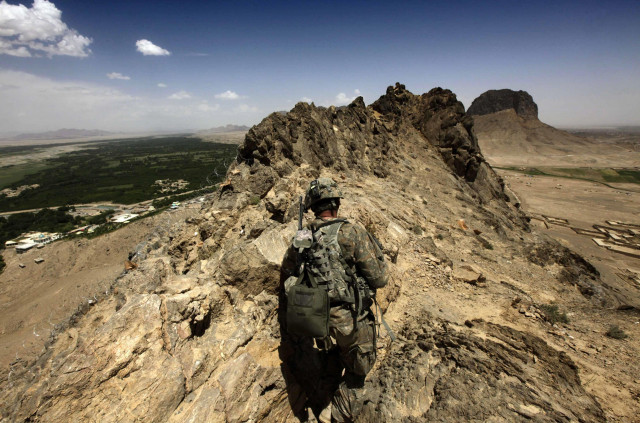Pakistan cautions US against phased pullout
Pakistan said the move to withdraw US troops from Afghanistan could further destabilise the war-torn country.

Speaking at a weekly news briefing here, Foreign Office spokesman Abdul Basit, while welcoming the withdrawal of US troops from Iraq, said that the same policy would not work in Afghanistan at this stage.
“There have been questions whether starting a phased withdrawal of US forces from July next year will be of any help in achieving overall stability in Afghanistan,” the spokesman said. “At this stage, we do not want to see US precipitating its exit,” he maintained.
Earlier this year, President Barack Obama announced that the American troops would start withdrawing from Afghanistan by July 2011, as part of his new strategy to bring peace in the region. However, his policy has been questioned not only by Pakistan but also by his own military commanders.
Last week, Gen James Conway, a top US Marine, said President Obama’s deadline for withdrawal of troops from Afghanistan has given “sustenance” to the Taliban.
Basit said Pakistan believed that the United States would follow a holistic and comprehensive approach in Afghanistan, and the commitment of the international community would continue towards achieving common objectives of peace in Afghanistan. The spokesman welcomed the American decision to add the banned Tehrik-e-Taliban to its blacklist of foreign terrorist organisations subject to travel and economic sanctions.
The US State Department on Wednesday also offered rewards of up to $5 million each, for information leading to the location of Pakistan’s two most wanted men, Hakimullah Mehsud and Waliur Rehman.
In response to a question regarding the premier’s criticism against the NGOs, Basit said, “The prime minister was just highlighting the fact that as compared to the government, the administrative cost incurred by NGOs in relief and recovery operations, is very high.”
Published in The Express Tribune, September 3rd, 2010.



















COMMENTS
Comments are moderated and generally will be posted if they are on-topic and not abusive.
For more information, please see our Comments FAQ